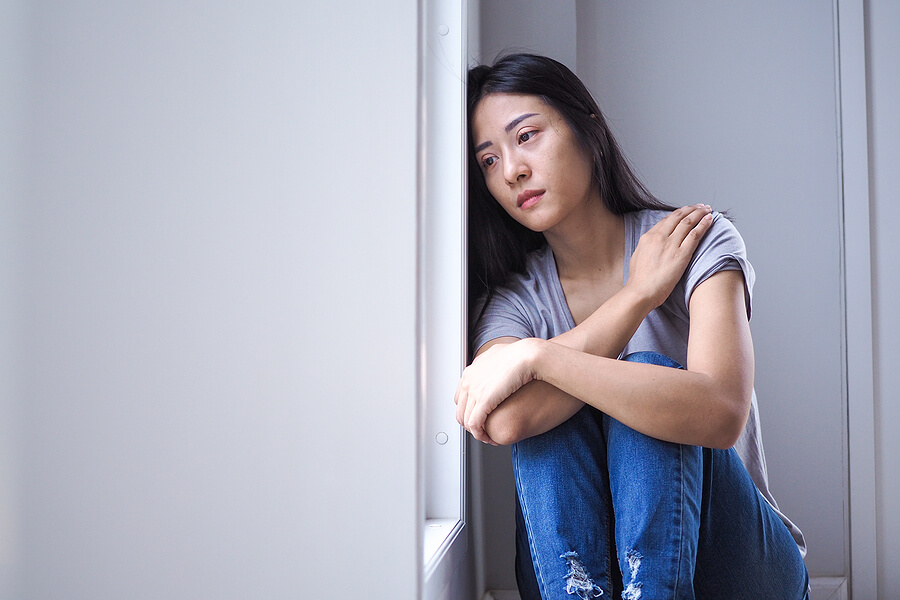When making a speech in front of an audience or meeting new people in an unfamiliar environment for the first time, it is common for most people to feel apprehensive and timid. However, social anxiety disorder goes beyond mere shyness and nervousness.
What is social anxiety?
Social anxiety disorder is a common yet under-diagnosed condition that affects people of all ages and cultures. Characterised by an overwhelming fear of social settings, individuals suffering from social anxiety disorder are constantly worried about being judged, scrutinised, or humiliating themselves in a social situation.
Sometimes, the anxiety and fear may become so intense that it interferes with day-to-day life. An individual with social anxiety disorder may start to feel anxious just by thinking about social situations and going to great lengths to avoid them.
Causes of social anxiety disorder
Research suggests that social anxiety disorder is typically caused by a combinational of both environmental and biological factors.
Some environmental influences that could contribute to and increase an individual’s risk of developing social anxiety disorder include:
- Bullying or constant teasing
- Being shamed in the past
- Having an overly critical parent
- Emotional or sexual abuse
- Family conflicts
- Having witnessed someone in a traumatic social situation
Apart from environmental influences, biological factors can also be another cause of social anxiety disorder. Individuals suffering from this disorder likely have imbalances of certain neurotransmitters in their brains. The brain uses neurotransmitters to transfer signals from cell to cell. Some of the neurotransmitters that are involved in anxiety include serotonin, dopamine and norepinephrine. For instance, an imbalance in serotonin, the brain chemical that regulates an individual’s emotions, may contribute to the development of social anxiety disorder.
Symptoms of social anxiety disorder
Individuals with social anxiety disorder often know that their fear is irrational, yet are still unable to control their emotions. Social anxiety disorder can occur in all social settings or be specific to one; such as public speaking. No matter the frequency and triggers, some of the common symptoms of social anxiety disorder include:
Physical symptoms:
- Blushing
- Nausea
- Trembling or shaking
- Muscle tension
- Racing heart
- Sweating profusely
- Feeling light headed or dizzy
Cognitive symptoms:
- Intense worry or fear of social situations
- Fear of humiliating oneself in front of others
- Fear of being judged
- Dreading and worrying for days or weeks before a social event
In extreme cases, individuals who have social anxiety disorder may avoid or even leave social settings including school or work when these symptoms arise. Some may even need alcohol to face a social situation, which may result in alcoholism.
Treatment for social anxiety disorder
Social anxiety disorder can be treated in a variety of ways and often varies from person to person. A suite of psychotherapy techniques such as schema therapy, eye movement desensitisation and reprocessing (EMDR), gestalt therapy, visualisation, cognitive behavioural therapy and more, can help an individual learn to understand their irrational emotions. Role playing is also another key technique that allows individuals with social anxiety disorder to rehearse how to react when faced with a social situation.
Getting a restful eight hours of sleep every night and avoiding caffeine are also some remedies that one can adopt at home. Lack of sleep can worsen symptoms of anxiety and caffeine stimulates our “fight or flight” responses, causes us to feel jittery and nervous.
Conclusion
If you or someone you know is struggling with social anxiety disorder and would like to seek therapy for anxiety, our psychotherapist at Emotionally Great can help you in your journey to recovery. We provide professional and effective counselling services in Singapore that integrate psychotherapy techniques to help you gain control over your emotions.
Fix an appointment with us today and let us work together to conquer your anxiety through psychotherapy and reclaim your life.

